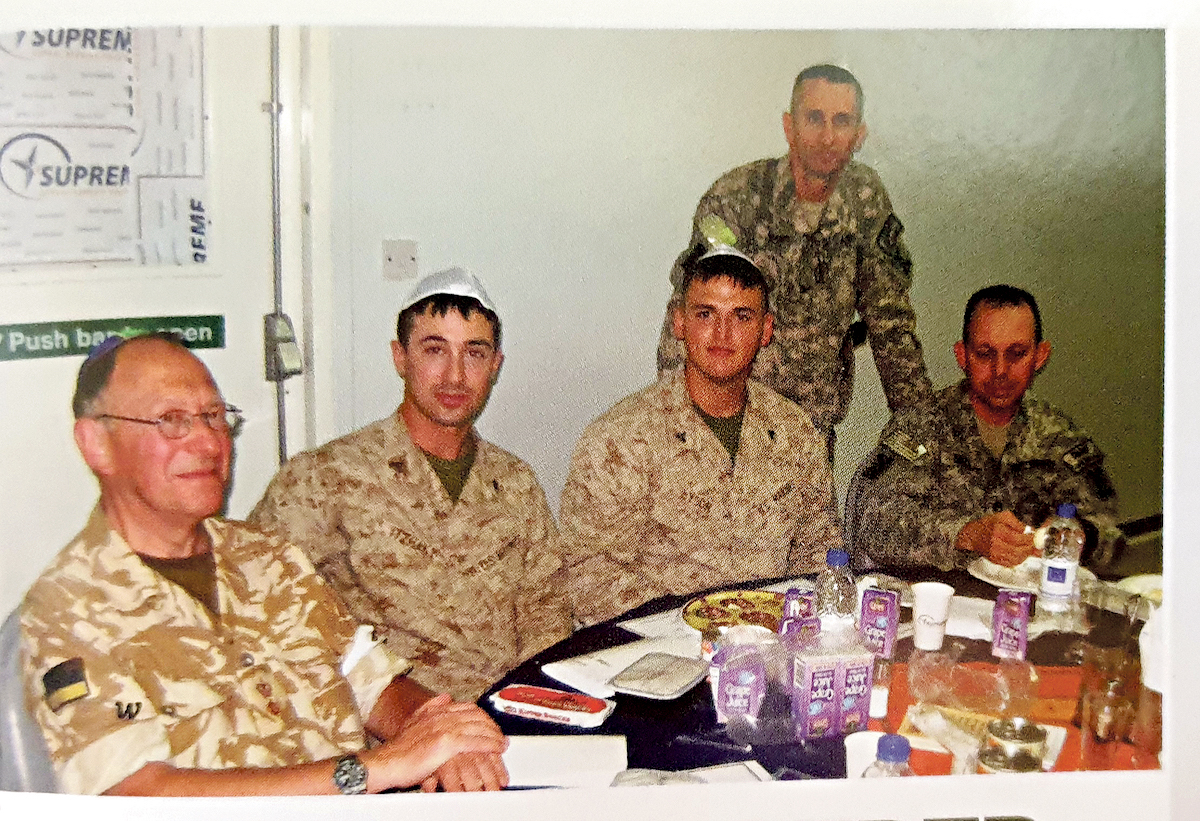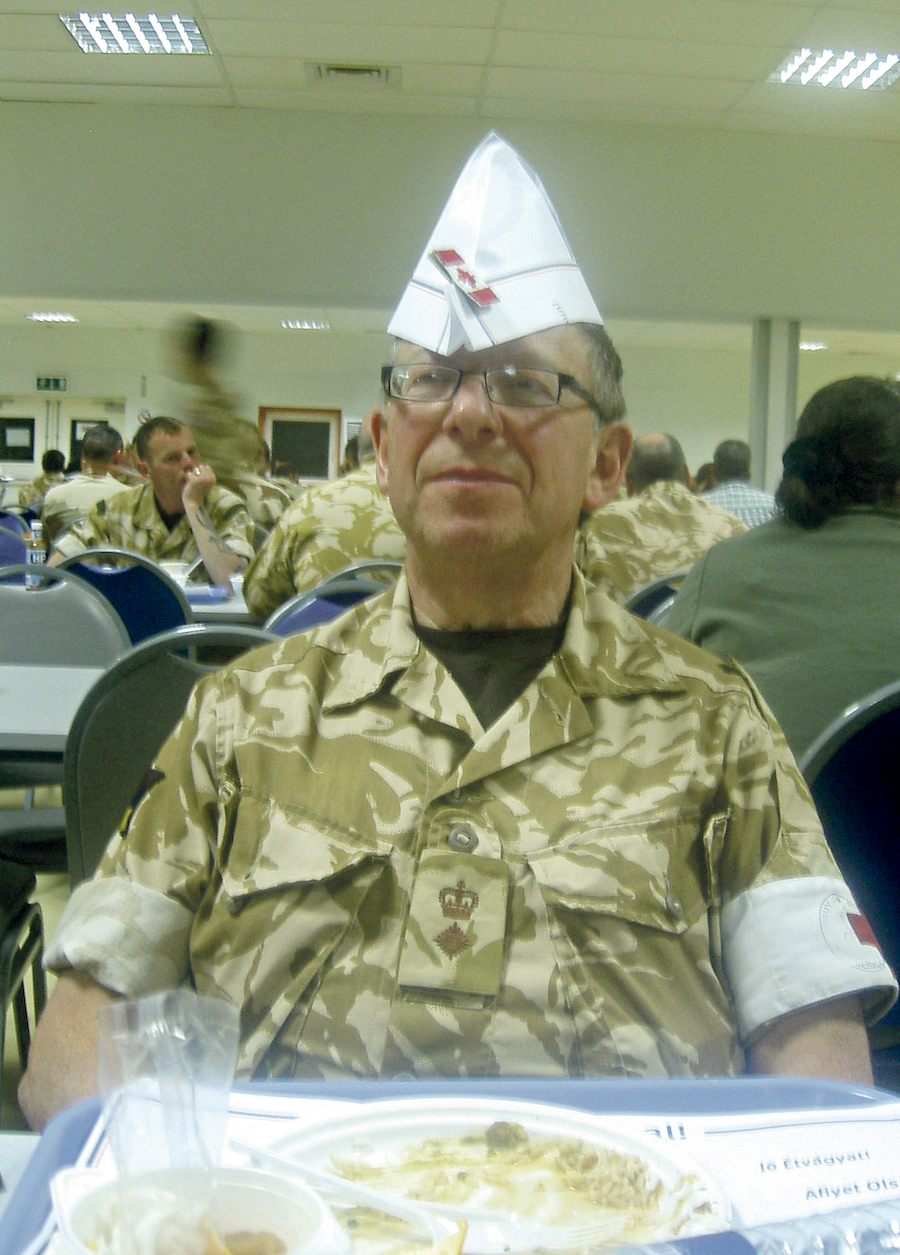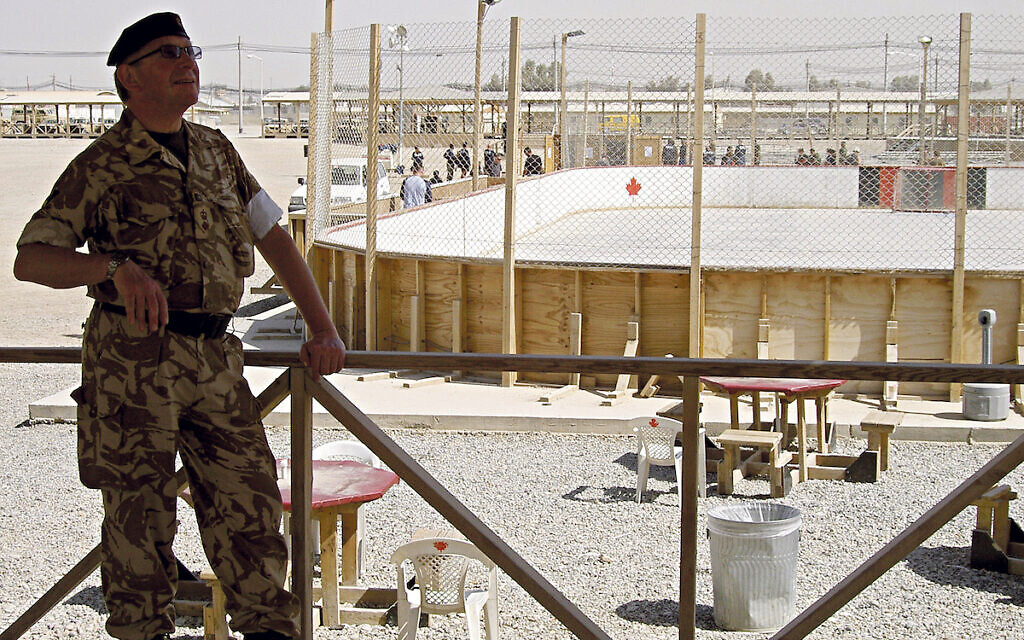Desert tales: Under fire from Saddam’s Scuds
Top surgeon Colin Shieff reflects on his role thirty years after the first Gulf War
Thirty years after the end of the first Gulf War, retired Jewish neurosurgeon Colin Shieff recalls the conflict with something of a light-hearted look.
A tented hospital in the Arabian desert was very different to life at the neurosurgical department of The Royal Free Hospital in London, once the professional home of the humble welfare officer at the Association of Jewish Ex-Servicemen and Women (AJEX).
“My dad was in the RAF at the end of the Second World War and had some stories to tell,” says Shieff, in an hour’s call during which he never mentions his five tours of duty, his trusteeship of a brain injury charity, or the Queen’s Volunteer Reserve Medal he was awarded in 2011.
Get The Jewish News Daily Edition by email and never miss our top stories Free Sign Up
Now with stories of his own, both from the Gulf and Afghanistan, this valued brain surgeon first heard rocket warning sirens in January 1991, after Saddam Hussein had invaded neighbouring Kuwait from Iraq and an international coalition set off to stop him.
Aged 39, he was doing his Entry Officer course for the Territorial Army when British TV began carrying images of the Iraqi dictator patting detained British children on the head. As all that was riling the public, senior officers got wind of what Shieff did for a living.
“Two days after I got back, my secretary came through and said: ‘There’s a strange man on the phone.’ That strange man was the director of Army Surgery, asking if I’d go and help them fight ‘this man’. I instantly said yes! I was single and up for a fight after training heavily for two weeks.”

It was Yom Tov, there was paperwork and kit and vaccinations to sort, but soon he was ready to go and, before the year’s end, he would be swapping the colder climate of London for the sand of northern Saudi Arabia, very close to the Iraqi border.
“Sometimes I had a feeling of adrenaline, other times I was thinking ‘what have I done?’ I hadn’t thought through the consequences and all the things that might happen, and I didn’t realise how disruptive it would be to my fairly stable, fairly comfortable existence.
“I also didn’t realise quite how much shouting, regulation and standing in line there would be, but I had fun and learnt a huge amount, and was better able to commit myself after, both professionally, militarily, even to relationships.
“I never regretted it, despite my concern at the beginning.”

The adrenaline was mainly caused by Saddam’s infamous Scud missiles – Iraq’s inaccurate long-range weapon of choice, fired towards the Allied forces building up nearby, including at Shieff’s base.
“It was known that Mr Hussein had weapons of mass destruction including gas, which he’d already used, and biological nasties such as botulinum [a toxin], so we had training on the PPE [personal protective equipment], how to eat and drink – and do number twos! – in special protective equipment, within a ‘chemical’
environment.
“You could actually see these things [Scuds] flying over you, not a ball of flame as such but something going through the sky that obviously wasn’t an aircraft,” he says, recalling how air raid sirens would send those on base running for cover.
“When I got home, I remember being on Oxford Street and hearing the sudden sound of a fire engine. I immediately twitched and got down on my knees, because it was so similar to the sound that had sent me panicking for three months.
You could actually see these things [Scuds] flying over you, not a ball of flame as such but something going through the sky that obviously wasn’t an aircraft
“I was embarrassed. People were asking if I was OK, but I could see there were one or two others who’d reacted in a similar manner. It’s a learnt response to a crisis situation. Military training elicits this instinctive reaction, to protect the soldier.”
Despite the much-mooted “shock and awe” tactics of American-led bombers in the first wave of Allied attack, the field hospital remained quiet at first.
“We had a handful of injuries, not from bombs or rockets, but car crashes and motorcycle accidents that went with the mayhem of war,” he says. “Turns out that’s quite normal [for a field hospital] – less is due to bullets and shrapnel, more to things like falling or putting your back out.”
The calm did not last. Among the worst injuries he treated were soldiers with horrific burns – “sufficient to stretch our medical skills” – as he worked with Danish, Dutch, Canadian, Swedish, and Singaporean doctors in a maze of tents housing makeshift wards and operating theatres, lacking items such as CT scanners.
We had a handful of injuries, not from bombs or rockets, but car crashes and motorcycle accidents that went with the mayhem of war
As the weeks went on, serious cases with brain injuries were also brought in. “To my great surprise, the patients we treated were almost exclusively Iraqi soldiers,” he says.
“They’d been badly injured in the Allied drive forward and taken captive. They were flown in on a helicopter, to our hospital, and treated in the same way as we would have treated one of our own.
“Some of these Iraqi guys, God bless, were very malnourished, dehydrated, hadn’t been wearing shoes for quite some time… Some didn’t know what was going to happen to them.
“Communication was through ex-pat Kuwaiti interpreters, brought in to spot any Iraqis pretending to be Kuwaitis – so, guys on our side. They weren’t shy in telling the Iraqis what they thought of Saddam!
“These were patients, not prisoners, but it was the first time I’d dealt with patients with whom I had no immediate means of communication. You had to be empathetic, smile, look them in the eye.
“That said, there were also times when you had to provide quite aggressive medical care for people who didn’t understand what was going on, were patently petrified, and who’d been told we were going to torture them or something. Ultimately though, we did contribute to
saving lives.”
Top right: . Above: Colin, pictured far left, hosting a seder on base

Thank you for helping to make Jewish News the leading source of news and opinion for the UK Jewish community. Today we're asking for your invaluable help to continue putting our community first in everything we do.
For as little as £5 a month you can help sustain the vital work we do in celebrating and standing up for Jewish life in Britain.
Jewish News holds our community together and keeps us connected. Like a synagogue, it’s where people turn to feel part of something bigger. It also proudly shows the rest of Britain the vibrancy and rich culture of modern Jewish life.
You can make a quick and easy one-off or monthly contribution of £5, £10, £20 or any other sum you’re comfortable with.
100% of your donation will help us continue celebrating our community, in all its dynamic diversity...
Engaging
Being a community platform means so much more than producing a newspaper and website. One of our proudest roles is media partnering with our invaluable charities to amplify the outstanding work they do to help us all.
Celebrating
There’s no shortage of oys in the world but Jewish News takes every opportunity to celebrate the joys too, through projects like Night of Heroes, 40 Under 40 and other compelling countdowns that make the community kvell with pride.
Pioneering
In the first collaboration between media outlets from different faiths, Jewish News worked with British Muslim TV and Church Times to produce a list of young activists leading the way on interfaith understanding.
Campaigning
Royal Mail issued a stamp honouring Holocaust hero Sir Nicholas Winton after a Jewish News campaign attracted more than 100,000 backers. Jewish Newsalso produces special editions of the paper highlighting pressing issues including mental health and Holocaust remembrance.
Easy access
In an age when news is readily accessible, Jewish News provides high-quality content free online and offline, removing any financial barriers to connecting people.
Voice of our community to wider society
The Jewish News team regularly appears on TV, radio and on the pages of the national press to comment on stories about the Jewish community. Easy access to the paper on the streets of London also means Jewish News provides an invaluable window into the community for the country at large.
We hope you agree all this is worth preserving.
-
By Brigit Grant
-
By Laurent Vaughan - Senior Associate (Bishop & Sewell Solicitors)
-
By Laurent Vaughan - Senior Associate (Bishop & Sewell Solicitors)
-
By Laurent Vaughan - Senior Associate (Bishop & Sewell Solicitors)
-
By Laurent Vaughan - Senior Associate (Bishop & Sewell Solicitors)






















